Isenberg’s Third Inclusive Leadership Summit Emphasizes Growth
December 2, 2021
“Challenging your assumptions is the beginning of growth,”
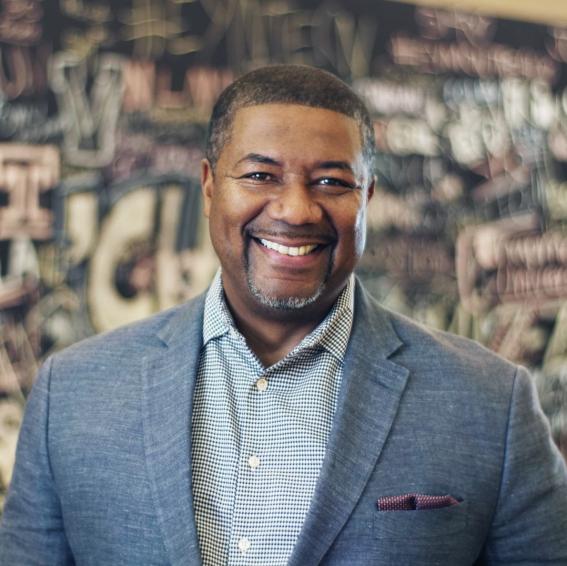
said Ken Bouyer, director of Inclusiveness Recruiting at EY, during his keynote speech for the Inclusive Leadership Summit (ILS) on November 1. The keynote initiated the week-long ILS discussion on the importance of diversity and inclusion in the workplace, education, and our very own communities.
Bouyer emphasized the importance of having open and honest conversations about the issues we are facing today, specifically repeating the phrase, “Conversations are the currency for change.” He pointed out that part of having open and honest conversations is offering up solutions and steps an organization is going to take to pursue change—Bouyer said that accountability is the most important step towards promoting diversity, equity, and inclusion (DEI). He said everyone has a role to play in promoting and implementing DEI in corporate America, our institutions, and our communities—and that includes students and employees holding companies and organizations accountable for their promises. Bouyer touched on his personal experiences, challenging circumstances, and perspectives while working in corporate America as a Black man to demonstrate the importance of diversity and inclusion.
Speakers Share Experiences and Strategies
The ILS presentations, panel discussions, and case competition all took place online for the second year in a row, attracting close to 200 participants. The goal of the presentations was to provide students with the tools and networking opportunities to understand the importance of diversity, and to learn the skills and capabilities of inclusive leadership. Although the content was student-focused on the topics of diversity, equity, and inclusion, the conversations and resources were designed to provide value to anyone in the workforce or an academic institution.
After Monday’s keynote, sessions took place each evening through Thursday. One of Monday’s panels focused on anti-racism and social justice in the workplace, with participants discussing different ways organizations are shifting from a model centered around diversity and inclusion to one that prioritizes social justice and anti-racism. Industry leaders gave illuminating insight onto how they’re implementing social justice and anti-racism models in their workplaces and academic institutions.
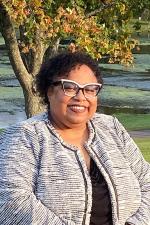
“If we can just get these tools in people’s hands that can help them realize that maybe, they’re just not seeing this,” said Erika Dawson Head (left), director of diversity and inclusive community development for the Robert and Donna Manning College of Information and Computer Sciences at UMass Amherst. “I think that it makes such a difference. It’s a chain reaction.” She added, “If we can help someone to be able to see what’s going on, then they’re going to bring that home. They’re going to bring it back to the people that they’re with and hopefully they can have the strength and the tenacity to be able to stand up and say, ‘No, this doesn’t sound right.’” She and her fellow panelists have taken an in person and direct approach to create safe and anti-racist spaces.
When asked about how organizations have responded to the recent Black Lives Matter protests and made efforts to lead meaningful change, panelist Junaid Hoosen, managing director of consulting services at EY, discussed the three steps his organization has taken: “Advancing greater equity and inclusion, driving policy change externally, and the way we engage with the communities we work with and our clients.” Sarah Patterson (right), assistant professor in the English department at UMass Amherst, focuses on recruitment and “tapping into the past” to see how our history is connected to what is happening today.
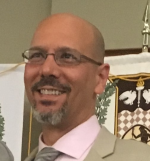
All the panelists agreed that their work towards implementing anti-racism has completely changed their lives, but assert that there is more work to be done. Stephen Fernandez (left), engineering engagement specialist in the university’s College of Engineering, pointed out, “I refuse to say that we’re going to go forward with our world like this. This world needs to change. We need real structural change in our institutions.”
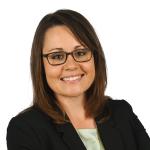
During Tuesday’s session, Nicole Melton (right), associate department chair and associate professor in Isenberg’s McCormack Department of Sport Management, led a panel that included leaders from EY, Wayfair, and UMass Amherst discussing how students and employees can implement self-care into their routines while continuing to do the work of building greater equity and opportunities in their field. This panel talked through ways people can support their colleagues and advocate for their own well-being in the work place.
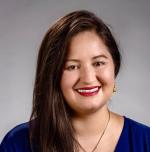
When asked about how they encourage colleagues to take care of themselves, all panelists agreed that setting an example is the most effective way. “It’s important they understand that they are people,” said Catheryn Chacon Ortega (left), senior tax accountant at EY, “If you set that example, they will reciprocate it as well.”
Tracy Wuest, senior manager of DEI Communities at Wayfair, highlighted the importance of staying firm in your boundaries, and finding an mentor within the company who can support a student in that journey. Panelists focus on doing one thing for themselves everyday: getting a good night’s sleep, embracing screen-free time, and setting a commitment to do it.
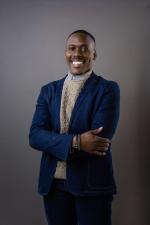
On Wednesday evening, Justin Coles (right), an assistant professor in the College of Education and the director of arts, culture, and political engagements at the Center of Racial Justice and Youth Engaged Research, moderated a panel about ways business leaders can advocate for equitable economic development within the communities served by their organizations and society. Panelists shared advice for entry level professionals who are looking to advocate for economic justice in their workplaces, with Tanya Coker-Fergusson, an audit professional at RSM who serves as one of the firm’s ‘CEO Action for Racial Equity’ fellows, saying, “I would encourage those in the majority to be allies. To learn about the issues, not remain silent in the face of injustice, and respond when appropriate.” Priyank Arora, assistant professor of operations and information management at Isenberg, stressed the importance of being prepared when advocating for change in the workplace.
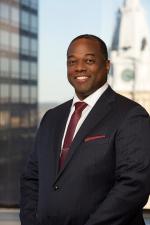
Business leaders also spoke about how they’re involved in economic justice in their communities, whether it be at work or outside of work. Reese Blair (right), an audit and assurance partner in Deloitte’s Investment Management Services group and the DEI leader within Deloitte’s Eastern region, focuses on using his seat at the table and recognizes he’s not just an ally but an accomplice to disrupting structural issues and provoking change. He’s been intentional about the onboarding experience of new hires and how to ensure unconscious bias doesn’t creep into performance feedback.
Blair ended the panel with words of hope, saying “Empower. Engage. Promote. Empowering yourself, know that you have a voice and don’t ever settle for the word just. That you’re ‘just’ a freshman, or ‘just’ a first-year. That’s a limiting belief. And empower others to have a conversation and judge them on intent, and not get lost in interpretation."
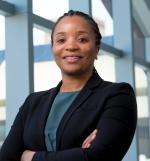
On Thursday evening, panelists discussed intersectional allyship in a conversation moderated by Nefertiti Walker, an associate professor of sport management and the university's vice chancellor for diversity, equity, and inclusion. Participants pointed out that personal connections and conversations are what allow people to support and feel empathy for their coworkers and acquaintances.
Virtual Networking With Generous Sponsors
Students who participated in the summit were able to attend a virtual networking event to chat with representatives of the ILS sponsor companies, all of which are also leaders in diversity, equity, and inclusion initiatives within their own industries. The premier sponsor of the 2021 ILS was EY; RSM, Deloitte, Grant Thornton, Wayfair, BDO, BNY Mellon, KPMG, and TJX were also sponsors.
ILS Case Competition
Undergraduate students participating in the ILS were able to take part in a case competition, which challenged them to better understand the thinking around inclusion and diversity in the workplace. The case, which was provided by EY, asked teams of students to demonstrate critical thinking, strong presentation skills, teamwork, and time management. The groups discussed and solved real-world inclusion issues, taking away a deeper understanding of inclusion and diversity in the workplace, stronger presentation skills, professionalism, and a larger network of relationships.
Members of the winning group—which included finance major Vriti Gupta, marketing major Navya Gupta, and OIM major Erica Phan—each received $250.